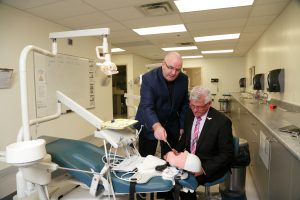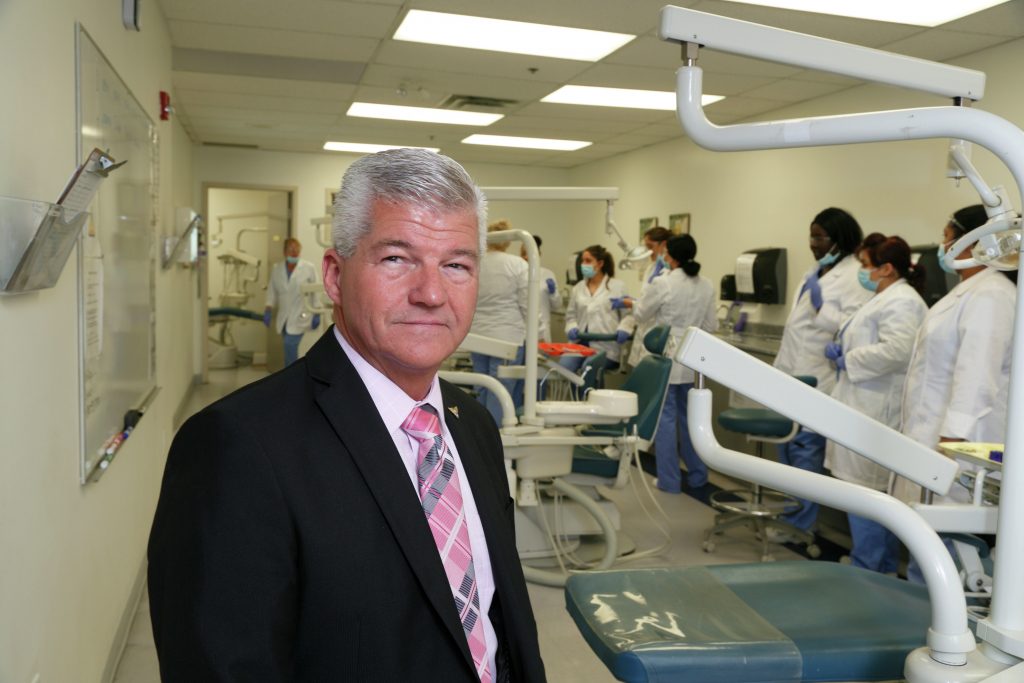Blended Learning
On the heels of an ownership change and merger, Westervelt College looks to add programs and locations
Photo: Don Thibert
THE FACE OF career college education in London and area is about to change, following the merger of Westervelt College and the Southwestern Ontario arm of Medix College. The new institution will operate as Westervelt College, maintaining an identity that began in London in 1885.
Already, the merged school has left the former Westervelt home on Wellington Road at Bradley Avenue. It is operating primarily in the former Medix space at Richmond Street and Horton Avenue. There’s also a smaller facility in Oxbury Mall, but plans call for everything to be amalgamated under one roof.
That’s just one of the things on the to-do list of new owner, Don Thibert. A one-time Westervelt employee, Thibert has worked in the career college field for more than 25 years. This summer he purchased the two schools with a view to merging them.
“We’re looking to stretch across Southwestern Ontario with more programs and locations,” he says.
With official recognition of the merger from the province pending, the new Westervelt is operating in London, Kitchener and Brantford, with about 200 employees and up to 750 students. A collection of Medix schools that continue to operate in and around Toronto are unrelated.
“We’re a niche trainer. We might have 25 to 50 people in a program, matching what they’re learning with the job market, so they get the skills and training employers are looking for when they graduate” —Don Thibert
There was little overlap between the Medix and Westervelt curricula, Thibert says. Medix focused on healthcare primarily; Westervelt offered some healthcare courses and some business-oriented programs.
The watchword at the new college, like all career colleges, is employment. Students are there to learn the skills and gain the certification they need to get a job in their chosen field.
“In addition to the specific program, we also teach life skills,” says Gerry Slattery, the long-time director of Medix, who will continue in that role with the new school. “We talk from the first day about essential workplace skills, about developing the person. Our students are looking for a career, not just a job.”
Westervelt programs typically are one year and can cost up to $12,000. Classes follow a set schedule—for example, 9 a.m. to 1 p.m., five days a week—because many students also have jobs or family responsibilities and must schedule around their classes.

Photo: Westervelt campus director, Gerry Slattery, and owner, Don Thibert
The college talks with employers regularly and offers courses that match as closely as possible to their needs.
“We’re a niche trainer,” Thibert says. “We might have 25 to 50 people in a program, matching what they’re learning with the job market, so they get the skills and training employers are looking for when they graduate.”
The amalgamated school reports graduation rates in the high 80 per cent range, and employment rates in the same neighbourhood.
“When we see job postings that ask for Westervelt-level training, we know we’re delivering what employers want our students to learn.”
The Westervelt orthopaedic technician program is a prime example, Thibert says, of the way the school listens to the needs of professionals and designs its courses to deliver qualified graduates. “We created that program because hospitals weren’t happy with the apprentice system that was in place. We’re delivering qualified people now.” ![]() Christopher Clark
Christopher Clark

